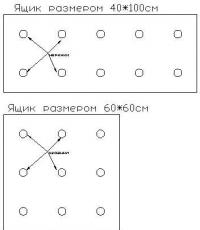England referendum to leave the EU result. UK exit from the European Union (Brexit)
Main world news. The UK voted to leave the European Union. This is for now preliminary results, but few doubt that the result will be the same. All night long the scales fluctuated from one side to the other, dragging the pound sterling and the exchanges with it. Unexpectedly for everyone, Wales voted for the exit, and in Northern Ireland, residents wanted to stay in the United Europe and are already talking about their readiness to leave the UK.
The news had just come out and the anchor said that the British had woken up in new country. This is not an exaggeration. Today we are experiencing a historic event that will change not only Britain, but all of Europe and the whole world.
The British voted to leave the European Union. The count of the remaining votes will not change the final result: a little less than 52% are in favor of leaving, and 48% are against. The gap is about four percent. It shows how divided the country has become. For comparison, in the Scottish independence referendum, the gap was ten percent. The turnout was very high for Britain - 72%. 80% expected, but yesterday's bad weather - a hurricane, thunderstorms and flooding, it seems, did not allow everyone to come to the polls.
The surprise for everyone was that Wales, which by all forecasts should have voted for EU membership, voted to leave. Scotland and Northern Ireland, as expected, have the highest number of EU supporters.
England, with the exception of London, Liverpool and Leeds, voted broadly in favor of secession. And such unanimity, of course, became a huge sensation.
Today is a holiday for exit supporters, for Brexiters - those politicians who have been actively campaigning since February. One of the most famous Euroskeptics, Nigel Farage, has already made a statement.
"We did it! We made it through a hell of a lot of hard work. I hope our victory will destroy this failed project and lead us to a Europe of sovereign states that can trade while remaining friends and interacting with each other. And let's get rid of the flag, the anthem, Brussels and everything that went wrong. May 23 June go down in history as our Independence Day!” said Independence Party leader Nigel Farage.
No response has yet been received from the official Brexiter camp, that is, from Boris Johnson. Just as there is none from Prime Minister David Cameron, for whom the result of the referendum means defeat and, most likely, the end of his political career. Although politicians agreed before the referendum that Cameron would remain in power.
The results of the popular vote received an immediate reaction from the Scottish leadership. Nicola Sturgeon said that the plebiscite "demonstrated the desire of the Scots to be with a United Europe", which means that the second Scottish referendum is just around the corner, which this time can bring independence to this country.
Politicians in Northern Ireland are also making claims that Brexit could trigger the separation of Northern Ireland from the United Kingdom. That is, we can talk about the collapse of Britain. The only question is whether this will happen in the relatively near future, or in the distant. But today's results could also have a domino effect for many European countries that look to Britain as an example.
“I think we will soon see movement in other countries towards leaving the EU, and they will also want to host referendums. So we are acting as a catalyst,” said Labor MP Kate Howey.
In other news, the incredible fall of the pound sterling, the most rapid since 1985. The value of the euro has also fallen, and what is happening now on the exchanges that have already opened, to put it mildly, can be called panic. Of course, this is not the end of the world in terms of finances, but everyone is at a loss.
Of course, it must be said that although the British voted for Brexit, that is, for leaving the European Union, this will not happen immediately. It will take years of negotiations, which will include those politicians who campaigned for leaving the EU. And this transitional period can last for long years. They call four, and eight, and ten years.
In 1975, when the British confirmed their country's membership in the European Common Market in a referendum, the majority voted in favor.
So the British voted to leave the European Union. According to the agencies, this is the final result. The figures are as follows: about 52% of those who voted decided to leave united Europe, while 48% want to stay. There are more than 1,200,000 people who are in favor of leaving.
The results of the referendum in Wales were a sensation for many - according to all forecasts, there were more EU supporters there. As a result, the inhabitants voted for the so-called "Brexit". In Northern Ireland and Scotland, there were no surprises - and there, and there the inhabitants said "yes" to the European Union. The results of the referendum across the country, most likely, will not suit them, and residents are already talking about the possibility of leaving the UK.
No one is now going to predict all the consequences of the historic referendum. But analysts agree: without London, the European Union will, of course, lose its political weight. In addition, other countries may follow the example of the UK.
What will the results of this historic referendum - 52% for "leave" and 48% for "stay" - mean for Britain? Victory in the Battle of Trafalgar, when the French fleet was defeated, but England lost the organizer of the victory, Admiral Nelson? Or is it the liquidation of the English Channel, which in England is simply called the "Channel" and which crossed out the underwater tunnel that unites Great Britain and Europe?
The clock on Big Ben showed 4:45 am on June 24, when the BBC announced the victory of the Brexit supporters. The price of the British pound has fallen. Financial markets tried to absorb the news from London.
Both the polls and the far more accurate sweepstakes, which predicted the victory of supporters of EU membership, were wrong. Anti-elite, populist and nationalist sentiment took over, taking advantage of economic and cultural fissures. "The dream of an independent United Kingdom has begun to come true," proclaimed Najel Farage, leader of the Independence Party.
So, Britain became the first of the 28 EU members to leave the bloc, never recovering from the financial crisis of 2008 and the economic turmoil that followed, the rise of Russia and the massive, indigestible influx of migrants.
The results of the referendum hurt and weakened Prime Minister David Cameron, who led the pro-EU forces.
Cameron himself expected that in the event of a defeat, he would begin a quick "divorce" process. The leaders of the “divorce” themselves are in no hurry. Little will change in the near future on both sides of the English Channel. All trade and immigration rules will remain. And although the EU gives the “falling off” side two years for this, the process of such a breakaway is complicated and painful.
For the EU, the outcome of the British referendum threatens to be a big disaster. It calls into question the future of a bloc based on the values of Western liberalism and NATO aggressiveness.
Britain is the second economic power in the EU after Germany. It is a nuclear power and a permanent member of the UN Security Council with a "special relationship" with Washington. The loss of Britain is a deafening blow to the EU, which is already under the pressure of high unemployment, the migration crisis, the Greek debt and the conflict in Ukraine. The domino effect is already looming.
According to a Harvard professor and former leader German Council for Foreign Affairs Karl Kaiser, "Europe is interested in having Britain in the single market and in security relations."
While the Brexit leaders spoke, or rather, ranted, about sovereignty and the primacy of the English Parliament over the Brussels bureaucracy, about the "rise of the sun-drenched" country, they were troubled by the clouds whipped up by the freedom of movement of EU citizens. Actually, they decided the outcome of the referendum.
In 2015 alone, more than 330,000 migrants settled in Britain. Most of them were citizens of the European Union. Premier Cameron never found any effective measures in order to stop or at least limit this invasion. And although immigrants contributed to the growth of the country's economy and increase its tax revenues, nevertheless, part of the inhabitants of Britain felt some kind of insult to its national identity. In addition, immigration, of course, put significant pressure on schooling, home building, and health care.
Led by the UK's most vocal Independence Party, which flirted with xenophobia and nationalism and even, according to some of its critics, racism, the campaign certainly played its part. But even the official, more restrained campaign to leave the EU also used the issue of immigration as the basis of its slogan - "Take control". What is "take control"? Most likely, it was a feeling that the government could not handle the influx of immigrants from Europe and even outside of Europe in Britain.
As a result, the British referendum was greeted with enthusiasm by far-right parties in Europe from Marine Le Pen's National Front in France to the Alternative for Germany.
The depth of anti-European sentiment may be a key factor in the national elections to be held in the other two most important EU countries - France and Germany.
Preparations for the referendum in Britain took place in an atmosphere of mutual accusations and all kinds of threats that had no basis in the actual state of affairs. Both sides basically played on the feelings of the British, and these feelings were mostly based on fear. Those who advocated "leaving" Britain in the EU, as well as a whole horde of experts and elites, warned that if Britain left the bloc, that is, the so-called Brexit, the country could face economic disaster with the fall of the pound sterling, high taxes, job losses and other crisis delights.
Just a week before the vote, Britain was shocked by the brutal murder of a young Labor MP, 41-year-old Jo Cox. She advocated for Britain to remain part of the EU. But her killer exclaimed: “First of all Britain!”, “This is for Britain!”, “Let Britain remain independent!”. In England in particular, 85% of the population was seized with nationalism, nostalgia and cultural exclusivity in Britain. Many Britons to such anti-European leaders as Boris Johnson, the former mayor of London and a potential opponent and possible successor to Prime Minister Cameron. They proceeded from the fact that Britain would be more powerful and successful outside the EU.
In Scotland and Northern Ireland, on the contrary, pro-European sentiments were strong, which will cause even more tension in Britain. The results of the referendum are likely to lead to a new referendum on the status of Scotland. As for Northern Ireland, which has an open border with the Republic of Ireland, a member of the EU, new realities will arise here too. The borders between the European Union and a non-member of this organization, for economic and security reasons, will have to be equipped with new border posts that will check passports and goods.
Prime Minister Cameron was forced to call for a referendum back in 2013, when the anti-European wing of his own party merged with Farage's Independence Party, which was increasingly invading the legions of conservative voters.
However, Prime Minister Cameron expected to win because he had economic experts, US President Obama, European allies and big business. But, as often happens in referendums, political sentiments played the main role, and they were very dangerous for the British prime minister.
In addition, as expected, Cameron's position was weakened by the behavior of the new leader of the Labor Party, Jermie Corbyn. He is the representative of the most traditional and "hard" left flank of the party. That he was elected by the leaders of the Labor Party after a devastating defeat in May 2015 turned out to be a general sensation.
Corbyn once voted against England's participation in the European Economic Community. It was in a referendum in 1975. This time, he said he and his party would support Britain's continued EU membership. However, he showed no desire to support Prime Minister Cameron, his political rival. He bluntly stated that he is not a "big fan of the European Union". While Cameron stressed the risks of the British economy in its security and national influence, Corby spoke "about protecting the rights of workers."
Now it is very difficult, perhaps impossible, to predict what will happen to Britain, the European Union and NATO in two years. But one thing is clear - all these three pillars on which the Western system is based, which has developed against the collapse of Soviet Union, will be significantly weakened and will not meet the new requirements of the new time.
At the last hour. As it became known, British Prime Minister David Cameron resigned.
Image caption The turnout in this referendum was unusually high.
The majority of those who took part in Thursday's referendum on Britain's continued membership in the EU voted in favor of the country leaving the European Union. According to preliminary estimates, 52% of Britons were in favor of Brexit.
The people of Scotland, Northern Ireland and London rejected Brexit, while the rest of England and Wales supported the idea of leaving the EU.
The leader of UKIP, the United Kingdom Independence Party, said the referendum was "independence day" for the country, while those opposed to leaving the EU called it a disaster.
Voters had to place a cross in front of one of two questions on the ballot: "Should the United Kingdom remain a member of the European Union?" or "Should the UK leave the European Union?"
The result was determined on the basis of a simple majority - to determine further fate Britain needed 50% plus one vote on one of these issues.
According to sociologist John Curtis, who commented on the referendum in the BBC studio, "this is a referendum in which London and university cities lost to rural and industrial England. This is a referendum in which cosmopolitan liberal Britain lost to a more conservative part of the population, deeply worried about immigration ".
And here is the preliminary verdict of the BBC political observer Laura Kunsberg: "Close colleagues of David Cameron say that he is a successful politician. But when it came to the biggest risk in his political career, then luck left him."
“In defiance of Cameron, in defiance of the status quo, in defiance of the entire political establishment, Britain has voted to leave the European Union, to break the political pact that has existed for decades and to be at the mercy of new opportunities or new risks - and perhaps both. to another."
Why Britain held a referendum on EU membership
Arguments for IN or OUT
Image copyright AP Image caption One of the most prominent and active supporters of "Brexit" was the former mayor of London, Conservative Boris Johnson.Immigration has become one of the main points of contention between supporters and opponents of Brexit. David Cameron has pointed out that he has won the EU's right to cut benefits for immigrants from other EU countries, and thus the problem is largely solved. Leave supporters said it was not even a half-measure, and that in any case it would in no way limit the influx of immigrants, including those who go only for benefits.
Another hot topic was national sovereignty. Boris Johnson and his associates opposed Britain's continued involvement in the "United States of Europe". Brussels is not going to abandon the idea of a European superstate in which great Britain will simply dissolve into one of the provinces, they said.
Cameron, in response, pointed out that the European Union confirmed the right of Britain to remain aloof from further integration and the ability to reject pan-European legislative initiatives.
What will happen now
For at least another two years, the country will remain in the European Union. According to Article 50 of the EU constitution, London must formally notify Brussels of its intention to withdraw. This formal notification will be followed by a negotiation process of approximately two years.
But the British government is not required to give such notification immediately after the referendum, and the negotiation process could take much longer than the tentative two-year time frame anyway.
In the event of a British exit, many laws and regulations based on European ones will have to be changed.
At the same time, negotiations will begin with the EU on the possibility of concluding a new trade agreement. No one knows how many years these negotiations will take.
Who could vote in the referendum?
Citizens of the United Kingdom and Commonwealth countries legally located in the United Kingdom, as well as British citizens living abroad, could take part in the referendum, provided that they were on the British electoral rolls no more than 15 years ago.
Citizens of other EU countries, with the exception of Ireland, Cyprus and Malta, could not vote in this referendum.
Tomorrow will be the moment of truth. Perhaps I would have passed by this event, but a few facts made me write this post. Many do not even know that the UK is now part of the EU, confusing the EU with the Schengen area.
The European Union is, first of all, a free economic and legal space between European states. Ironically, it was the United Kingdom that initiated its creation after the Second World War. Now the first one can leave this space... Why does Britain not like EU membership?
European Union
The starting point of the post-war movement for a united Europe is considered to be the speech of the outstanding British statesman Winston Churchill "The Tragedy of Europe", delivered on September 19, 1946 at the University of Zurich. Churchill called on the Europeans to put an end to "national strife", above all, to Franco-German antagonism, and to form "something like the United States of Europe" on the continent.
At that time already brewing cold war with the USSR, and the states simply needed a single European body that could be put under pressure. Agree, it is much easier to negotiate with one ally than with each separately. Plus, the United States needed a market for its goods in the postwar years, because. at the time, over 50% of world production was concentrated in the US. It is not surprising that at that time it was from the lips of the main ally of the United States that a proposal was made for a single union of Europe.
Years have passed. The EU has grown. What is actually this single space now? In fact: uniform tax rates, quotas, free movement of goods and services in the Eurozone. Unified social system of guarantees.
Great Britain with its developed economy is one of the most important engines of the European Union. Although she retained her currency, she did not enter the Schengen agreement, but she is still forced to play according to the rules of the single zone, infringing on her interests. As we know, these rules are adopted in Brussels and protect the interests of the entire Eurozone, not the UK in particular.
Proponents of leaving the EU
Supporters of the UK's exit, including the former Mayor of London Boris Johnson, build their arguments precisely on the fact that the UK feeds the whole of Europe with its powerful economy, while damaging domestic production. There are plenty of examples. The simplest - farmers. English farmers cannot directly sell their agricultural products in the amount they need on the territory of their country. Sounds amazing, but it's a fact. The next important aspect is jobs. Citizens of the European Union from the Baltic countries, Poland, Romania rushed to the UK to earn money. Every year there are more and more of them. Their cheap labor force seriously undermines the labor market. Unemployment is on the rise. British citizens feel disadvantaged.
They believe that EU membership slows down the growth of the UK economy, as Brussels adopts too many directives and laws, and in addition, London has to pay a significant amount to the EU treasury, receiving too little in return. They also want to return Britain to full control of its borders and reduce the flow of migrants.
The reasons are many and very important.
Proponents of the exit believe that the UK will be able to negotiate an amicable divorce, which will allow it to maintain close trade ties with EU countries.
Possible options:
Norwegian version: The UK leaves the EU and joins the European Economic Area, which will provide it with access to the single European market, with the exception of part of the financial sector of the economy. It will also free the UK from EU rules in areas Agriculture, fisheries, law and home affairs.
Swiss version: The UK will follow the example of Switzerland, which is neither a member of the EU nor the EEA, but concludes separate agreements with Brussels for each sector of the economy.
Turkish version: The UK may enter into a customs union with the EU, which will give its industry free access to the European market, but the financial sector will not receive such access.
The UK could also try to conclude a comprehensive free trade agreement with the EU along the Swiss model, but with guarantees for the access of the financial sector of the economy to the European market, as well as some control over the formulation and implementation of common trade rules.
The UK can completely break off its relations with the EU, and rely only on the rules of the WTO.
Opponents of leaving the EU
Everything is simple here. The current government is campaigning to stay in the Eurozone, hoping that the country will lose significant revenues upon exit. Among them are export earnings. The EU is the UK's main trading partner. In 2014, the union accounted for 45% of British exports of goods and services (295 billion euros) and 53% of imports to the UK (370 billion euros); EU countries accounted for almost half of the total volume of foreign direct investment in the UK - 636 billion euros, 48% (for comparison - 24% of foreign direct investment came from the USA and 28% from other countries).
Of course, it is much easier to follow the beaten track. The current government understands this. It is possible that when leaving the EU, unpopular legislative measures will have to be taken, and this will weaken the position of the current government. We will have to rewrite a lot of laws, rebuild the economic model of existence.
In the same context, one should not forget about the closest ally - the United States. Specifically, the UK's exit from the EU will not affect their relations in any way, but it will become a precedent for other countries that also want to leave the EU following the example of the United Kingdom. Now this is not at all good for the Americans.
The moment of truth will come tomorrow, June 23, 2016, when the British will answer just one question:
Should the UK remain a member of the European Union or leave the European Union?
Answer options:
Remain a member of the European Union
Leave the European Union
According to the Bloomberg news agency, at the moment, about 45% of Britons are ready to vote to retain membership in the European Union. About 42% are against and 13% are undecided.
As you can see, the voices are very close. All hope for both sides is 13%, which has not yet decided which side they will take.
Now the future of Great Britain and, perhaps, the whole of Europe is being determined. The polling stations will close in about two and a half hours. Campaigning is legally allowed on Election Day, and politicians used their last chance to influence British opinion.
In the morning, the news about the referendum was more like reports of a natural disaster. Still, heavy downpours with thunderstorms and floods could disrupt the vote in southern and central England. Weather-hardened voters rush almost afloat to the polling station, leaving detailed reports on social networks.
It is unlikely that the vagaries of nature will prevent Her Majesty's subjects from fulfilling their civic duty, especially since the rain ended around lunchtime. Many Londoners come to the polls after taking time off from work. They understand that this election is perhaps one of the most important in their lives.
All over the country, sites are open from seven in the morning until ten in the evening. Near some queue. Campaign leaflets and stickers are handed out at the subway exit. The law allows it. Judging by the most recent polls, supporters of a united Europe and Eurosceptics go head to head. The gap between them is from one to four percent. The fate of the referendum is decided by those who until the last could not decide on the choice.
“I would say that this day is the most important in the last 20 years, at least for the UK. The economic consequences of Brexit could be very serious, which is why I vote to stay in Europe,” says the young man.
“I believe that there is no democracy in the European Union, and the decisions that we make are too different from the decisions of other members of the union, so I vote for Britain to leave the EU,” the woman explains.
Campaigning started in February, when David Cameron negotiated a new agreement with the EU. The Prime Minister, who actually proposed holding a referendum, led the camp of supporters of a united Europe. Cameron's main argument is economic. Britain will lose its influence and economic weight by withdrawing from the European common market and political union. The Camerons voted in central London.
“We are stronger, we are richer and we are safer in the European Union! And that is why we must vote for our European future!” David Cameron said.
Eurosceptics believe that EU membership erodes national sovereignty. They campaigned in two columns. Former Mayor of London Boris Johnson has become the face of the official campaign. British Independence Party leader Nigel Farage campaigned separately. This controversial politician has devoted more than 20 years to the fight against the European bureaucracy.
When asked how you feel, Nigel Farage replies: “Great! I have been waiting for this referendum, without exaggeration, all my life. AT last time I was 11 when this vote was taken!
In 1975, the British confirmed their country's membership in the European Common Market for the first time. Now the key topic of Euroskeptics is migration. The incredibly high flow of migrants, and not only from EU countries, has become the main reason why many want to leave the European family.
“I voted for the exit, as the economy of our European neighbors is experiencing big problems, and therefore a lot of people come to us, to London. And this places an additional burden on social services. And then we don't have many opportunities for negotiations with the EU,” the girl explains.
Fearing Brexit, Londoners are actively buying up the euro and the dollar - after all, the pound could fall sharply if the country decides to float freely. The crisis plan was prepared not only by the Bank of England, but also by many companies trading with Europe. Foreigners living in London, and not only EU citizens, fear that they will not have to stand in queues for visas again in the near future.
“I am from Australia. I live here with my girlfriend from of Eastern Europe. And today I vote for the European Union. Why? I don't want to re-document my documents if Britain goes out of the EU," the man explains.
The last days of the campaign were marked by the memory of Joe Cox. The Labor MP and supporter of a united Europe was killed just a few days before the referendum. Perhaps, out of respect for the memory of the parliamentarian, out of solidarity with her views, they will vote for a united Europe. But the official Brussels on the eve announced the last warning to the British.
“The British voter must understand that there will be no new negotiations! We signed an agreement with Great Britain, you got the maximum of what you wanted, well, we cannot give more. In February, we signed an agreement with David Cameron and are not going to revise it. If you're going to go out, then go out!" - says Jean-Claude Juncker.
In a recent interview with the French newspaper Le Monde, Jean-Claude Juncker spoke even more sharply: “We will not accept deserters with open arms!” Most likely, London, Scottish voters and the people of Wales will vote for EU membership. It is curious that it was in Scotland, where European values are true, that the main Brexiter, Boris Johnson, voted. There will be no so-called exit polls at this referendum - the leading television companies fear that express polls near polling stations may give an incorrect result. The results of the voting will most likely be known in the early morning.





